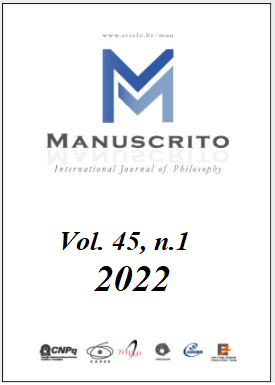Resumo
In reply to the claim that syntax is not taken into account in Linguistic Meaning Meets Linguistic Form, I show that local syntactic analysis has been implemented in the treatment of aspectual verbs and verbs of positive and negative recall, where the syntactic function of the -ing form as direct object of the main verb is put into relation with the main verb’s meaning as the basis for the inferences drawn concerning the temporal relation between the main verb’s event and that expressed by the complement. I argue that I have also developed new tools of syntactic analysis for the to-infinitive, demonstrating that it is not the direct object of the main verb, but rather a goal- or result-specifier, and showing how this accounts for the fact that its event is always understood to be somehow subsequent to that of the main verb. Regarding the applicability of formal semantics to natural language, I argue that the absolute priority accorded to the truth-functional dimension of language by this type of semantics leads to the artificial separation of use-conditions from truth-conditions, with the former being treated as an additional interpretational function added on to the truth-functional one. Contra the autonomous syntax claim that our desire to express meaning is to a great extent independent of the means we use to express those meanings, it is argued that how we perceive the world in our experience is influenced by our system of linguistic representation.
Referências
Aloni, Maria & Paul Dekker. 2016. Cambridge handbook of formal semantics. Cambridge: Cambridge University Press.
Duffley, Patrick. 2014. Reclaiming control as a semantic and pragmatic phenomenon. Amsterdam/Philadelphia: John Benjamins Publishing Company.
Gethin, Amorey. 1999. Language and thought: a rational inquiry into their nature and relationship. Exeter, UK: Intellect.
Lepore, Ernest & Barry C. Smith. 2008. The Oxford handbook of philosophy of language. Oxford: Oxford University Press.
Lucy, John A. & Suzanne Gaskins. 2003. Interaction of language type and referent type in the development of nonverbal classification preferences. In Gentner, Dedre & Susan Goldin-Meadow (Eds.) Language and mind: advances in the study of language and thought, 465-492. Cambridge, MA: MIT Press.
Saab, Andrés. (2022), "Do Linguistic Meanings Meet Linguistic Form?", Manuscrito, v. 45, n. 1, 155-174.
Taylor, John R. 2000. Possessives in English: an exploration in Cognitive Grammar. Oxford: Oxford University Press.
Whorf, Benjamin Lee. 1964. Language, thought, and reality: selected writings of Benjamin Lee Whorf. In Carroll, John B. (Ed.). Cambridge, MA: MIT Press.

Este trabalho está licenciado sob uma licença Creative Commons Attribution 4.0 International License.
Copyright (c) 2022 Manuscrito: Revista Internacional de Filosofia


